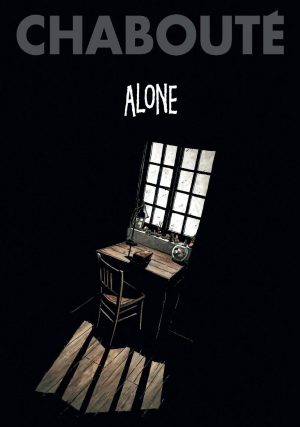Review by Frank Plowright
On the morning his father is to take a submersible deeper than ever before, Kaspar discovers he’s left his lucky watch at home. Predictably enough, tragedy occurs, and no eleven year old would be likely to cope well with the news. Eventually Kaspar’s mother thinks he’d be better off staying with his grandfather on the other side of the large island they live on.
I.N.J. Culbard has successfully adapted a number of gothic horror stories, and he manages to apply the same feeling of sinister foreboding to Kaspar’s experiences despite his clear storytelling and favouring bright colours to shadows. This is achieved by oblique references and inclusion of what to the characters is everyday life, but which to readers are menacing little undertones accompanying Kaspar, and these gradually manifest with greater frequency. Country and city are very separate, the crossing point between them is a scary place, and people’s lives are regulated and controlled. Everything is viewed through Kaspar’s eyes as Culbard ensures readers comprehend more than he does, although not everything as Culbard constructs a way of life much like the East Germany of the late 1940s to the late 1980s. The state observes all, no-one can be sure of true allegiances, even within families, and the horror eventually manifests via Kaspar not fully understanding the lives of others.
The visual metaphors are as finally tuned as the plot, with one recurring via lettering very cleverly placed, and like so much about Salamandre it can be taken at face value or comment on the wider world. Societal control, the importance of art, the tragedy of loss and the power of dreams collide in what’s a transformative arc, and a beautifully poignant coming of age story intelligently delivered.





